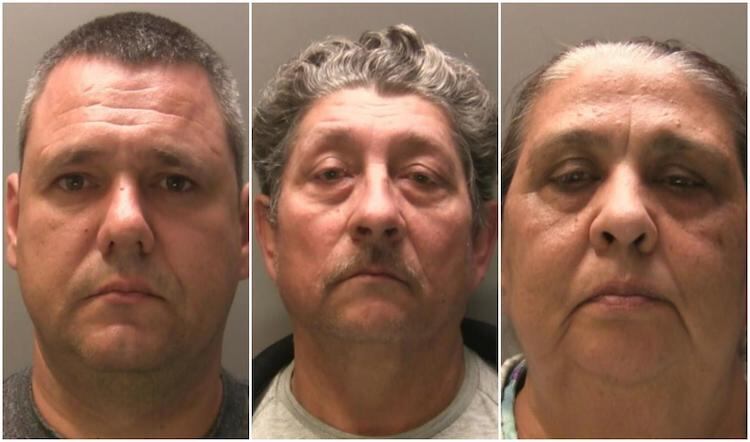Normunds Freibergs, along with Jacobus Stankevicius and Ruta Stankeviciene forced the victim to work to pay off an ever-increasing “debt” of £2,000 while at the same time pilfering his wages, the GLAA said.
The defendants also controlled his passport and bank card, stole parcels sent from family members, and threatened him with violence if he ever attempted to leave.
Jurors at Newport Crown Court returned guilty verdicts against Freibergs (40), of Morley Close, Newport, Stankevicius (59) and Stankeviciene (57), both of Capel Close, Newport, on Wednesday 24 August. The trio have been remanded in custody and will be sentenced later this year.
Freibergs, 40, will be sentenced for forced or compulsory labour and human trafficking offences under the Modern Slavery Act on Friday October 28. He was cleared of acting as an unlicensed gangmaster. Stankevicius and Stankeviciene will be sentenced at the same time for the same forced or compulsory labour offences.
Investigators from the GLAA, which has police-style powers to investigate labour market offences in England and Wales, arrested the defendants during an operation supported by Gwent Police in October 2018.
Concerns raised
The victim was referred to the GLAA by a licensed recruitment company after concerns were raised by staff at a poultry processing factory run by Avara Foods in Abergavenny where he had been working.
He had been introduced to Freibergs by a fellow Latvian national while he was working at a factory in Germany. Freibergs had been posing on Facebook as someone who worked for a recruitment agency and could help foreign nationals find work in the UK.
The victim contacted Freibergs through a social media platform and was promised work in a bakery and living costs of £85 per week.
Once in the UK, Freibergs placed the victim with husband-and-wife Stankevicius and Stankeviciene at their home in Newport, where the GLAA said he was made to live in fear of threats against his family and physical violence.
In interviews, the victim told the GLAA he was assaulted by both Stankevicius and Freibergs. On one such occasion, Freibergs hit him so hard that he was left unable to breathe properly.
Freibergs charged hundreds of pounds from him for arranging accommodation as well as for helping him to obtain a National Insurance number and taking him to register for work at a recruitment agency.
Working at poultry factory
The victim began working at the poultry factory shortly before Christmas in 2017, earning as much as £500 per week. However, his wages were paid into bank accounts Freibergs had forced him to open online and at high street banks in Newport city centre, the GLAA said. Only the three defendants had access to these accounts.
Speaking to the GLAA, the victim said that the most money he ever received was £20 and that this only happened on three occasions.
Now in his early 30s, the victim was supported by the GLAA and entered the National Referral Mechanism, a government framework providing for those who are trafficked and exploited for their labour.
He now has a job in another part of the UK and is doing well, the GLAA said.
GLAA Investigating Officer Laura Thomas said: “Exploiting vulnerable workers is completely unacceptable and we will not stop in our efforts to bring those who treat people as commodities to justice.
“Freibergs, Stankevicius and Stankeviciene treated this human being like their own private cash machine, stealing thousands of pounds of his hard-earned wages for their own ends. Debt bondage, where exploiters control and trap their victim in an endless cycle of perceived debt which realistically can never be repaid, is something our organisation unfortunately encounters all too often.”
Gayle Ramsay of the Crown Prosecution Service said: “This is an appalling case of exploitation where a victim was trafficked for modern slavery purposes and subjected to a life of misery, purely to line the defendants’ pockets.”




